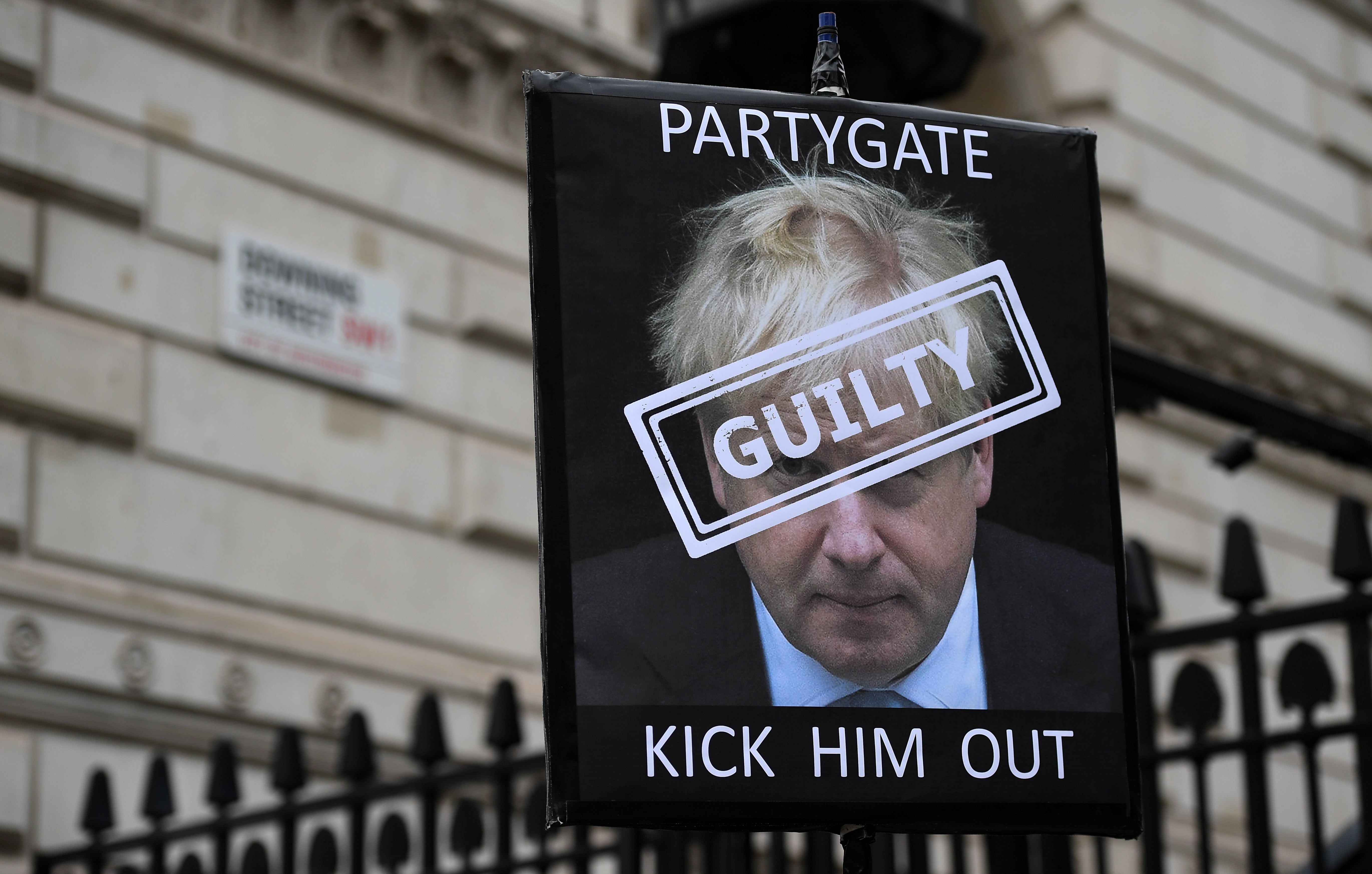Can Boris Johnson survive or will his party realise he is an electoral loser?
There is little room for sentimentality in the Tory party, and not much gratitude for past glories, writes Sean O’Grady


At first glance, it seems Boris Johnson might survive this latest revelation in the long-running Partygate scandal.
The few Tory MPs who withdrew their letters to the backbench committee calling for Johnson to quit are not changing their mind. Andrew Bridgen, for example, has repeated his belief that the war in Ukraine means this is not the moment. Even Roger Gale, one of Johnson’s most trenchant critics, and someone who still thinks the country would be better off under fresh leadership, wants to pause the procedure for the time being. A bogus argument about war preventing a leadership change seems to be working, apparently meaning that the leadership of the Conservative Party is tied to the relative strengths of the Ukrainian and Russian armed forces.
Scottish Conservative leader, Douglas Ross, who had previously called on the PM to stand down and then reversed his line, was the first major figure to allow Johnson an escape although his TV interview on the topic was like a hostage video. As ever, Michael Fabricant did more harm than good, chucking casual insults at the teaching and nursing professions. Only Ruth Davidson renewed her call to get Johnson out.
But the endorsements kept coming. After a very slow start, the cabinet, led by most-loyal-of-the-loyal Nadine Dorries, was on Twitter using boilerplate language to add their support. After a few hours of ominous silence, the chancellor appeared to have been talked out of quitting. The deflation of Rishi Sunak, reportedly cordially loathed by Johnson, means that the prime minister’s most credible successor has been vanquished.
Yet Johnson should not reach for the cake and champagne yet. Partygate still has the capacity to shock and upset, despite – and indeed because of – Tory attempts to trivialise it. There will be more fixed penalty notices and at least one more, probably, for the prime minister. What he said to parliament and the media about obeying rules remains controversial, and at times ludicrous. The polling suggests that a great many voters don’t trust Johnson, which isn’t a good thing. If Covid comes back for another wave, he’ll find it difficult to get people to follow the rules.
The Conservatives are behind in the polls largely because of Partygate, and they remain behind, albeit having staged a partial recovery. The Tories face a revived Labour Party with a much stronger front bench than at the 2019 election: Johnson misses Jeremy Corbyn more than words can say.
Then there are important elections on 6 May. The Liberal Democrats showed what they could do to Tory strongholds in the North Shropshire and Chesham and Amersham by-elections. The Greens are making a few inroads in the Tory shires, over planning and farming issues. Johnson is personally toxic in Scotland, as the SNP know well. The elections will demonstrate that Johnson is an electoral liability and a mortal danger to the union.
Things can switch back remarkably quickly in the Conservative Party. Margaret Thatcher in 1990 had won three general elections, won the Cold War, was a global figure and at that year’s party conference was cheered to the rafters, as always. A few weeks later she was gone. There is little room for sentimentality in the Tory party, and not much gratitude for past glories. What matters is winning. And sooner or later his party will realise that Johnson is a loser.



Join our commenting forum
Join thought-provoking conversations, follow other Independent readers and see their replies
Comments